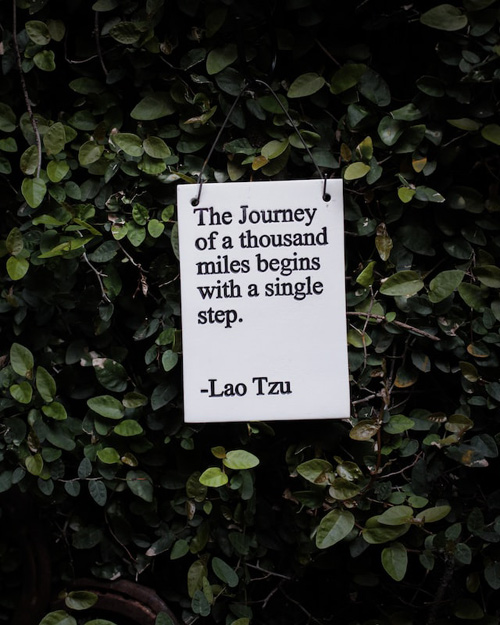Thought Leadership Studio Podcast Episodes:
Interview with LaTisha Styles - Marketing Expert, Coach, and Mentor to High Achievers
Episode 23 - Identify and overcome internal and external obstacles to thought leadership with marketing expert and mentor LaTisha Styles.

#coaching, #inspiration, #interviews, #marketing, #thoughtleadership
Or Click here to listen or subscribe on appWhat this episode will do for you
- Gain insights from marketing coach and mentor LaTisha Styles.
- Identify and overcome obstacles to thought leadership.
- Tap into a deeper mission connected to helping others.
- Learn how LaTisha views building a movement.
LaTisha Styles, founder of You've Got Clients®
 LaTisha is the founder of You've Got Clients® a marketing consultancy dedicated to helping coaches create and fill their coaching programs with high-quality clients. She has a YouTube Channel: LaTisha Styles. She is on Twitter as @LaTishaStylesTV.
LaTisha is the founder of You've Got Clients® a marketing consultancy dedicated to helping coaches create and fill their coaching programs with high-quality clients. She has a YouTube Channel: LaTisha Styles. She is on Twitter as @LaTishaStylesTV.
... You're continuing to do it because you enjoy it, because you love it. Because if no one else was there and no one else was listening to you, you would still be creating that content. You'd still be talking about that topic.
You're passionate about it, you love it, and it doesn't matter if you have an audience of one, an audience of 10 or an audience of 10 million, you are still going to be leading without wondering, "Is anyone following me?"
Because this is what you enjoy and this is what lights you up.
-LaTisha Styles
Curated Transcript of Interview with LaTisha Styles.
The transcript is lightly edited for clarity and is a partial transcript- the full interview is on audio. Click here to listen.
Chris McNeil: I'm Chris McNeil, host of Thought Leadership Studio, and I'm here with Latisha Styles, who's a marketing expert and mentor to high achievers. She helps entrepreneurs shift subconscious blocks so they can raise the rates and gain the confidence they need to create massive profits. She's an online marketing certified professional site K facilitator, and the founder and CEO of You've Got Clients. Her work has been featured on notable publications, including Forbes, Fast Company and Business Insider.
Welcome, LaTisha.
LaTisha Styles:Hey, thanks for having me, Chris. I'm super excited to be here.
The Turning Point
Chris McNeil: That's awesome. And I think a good place to start for those who aren't yet familiar with you and your work is to tell us a little bit about the moment of inspiration that was the turning point for you, that got you to create all that you've created to help other people with online marketing and coaching.
LaTisha Styles:Yeah. I love the way that you phrased that question. Generally, the first question I always hear is like, tell me about yourself. And so thinking about it from that perspective of the inspirational moment is really cool.
So basically what happened with me is I'd been wanting to create an online business for the longest time, and I started out as a personal finance blogger and I was just creating content online. And I tried to take that blog and turn it into a full-time business. And my goal was to have it as something that supported myself and, you know, maybe even grew down the line. And unfortunately it didn't quite go the way I thought it was gonna go. I, after quitting my job to take it full time, I ended up back into corporate America. And at that point, I really felt as though I had failed.
I felt like, you know, I had set out to do this, do this thing, I had this goal, and it just didn't work the way that I was expecting it to. And I remember I was driving from our home in Tennessee to go see my, my family in Georgia, which is where I live now. And it, this was about a six-hour drive. And so, on that drive, I remember thinking, "You're only a failure if you quit. You know, you're not gonna quit. You know, eventually you're going to be successful. So what does that really mean to you right now? "
These are the things I'm saying to myself. What does that really mean to you right now? What do you need to do? And this moment, I remember it so clearly, the radio is on, and there was a song by Mary j Blige called No More Drama.
And in that moment, in the song, she was saying, "I don't know, only God knows where the story ends for me, but I know where the story begins. It's up for us to choose whether we win or lose, and I choose to win."
And it was like that quote at that moment I remember thinking, I choose to win. I choose to win. And, there was a mentor that I had been following that I really wanted to work with, but I had been putting it off. And in that moment, I pulled over, I gave her a call ... I sent her a message and I said, I'm interested in working with you. And long story short, I locked that in.
And that was the moment that I got started on my journey of a successful business where I've been self-employed since October of 2015. I've been able to help business owners with content creation, teaching them online marketing and really growing from the person who was just really trying to make it into where I am now. Which is, like I said, helping clients to break those subconscious blocks so they can create profit.
Chris McNeil: That's awesome. And I love the moment of decision and that music was a part of it ... and that positive self talk was a part of it's almost like you were coaching yourself to make a decision that ended up being a permanent decision that changed your life.
LaTisha Styles:Absolutely.
Identifying and Overcoming Obstacles to Thought Leadership
Chris McNeil: And so I'm sure you've run into external and internal obstacles, and you're clearly very skilled helping clients overcome external and internal obstacles. What do you think are the most prevalent few obstacles that people run into aiming to be a leader online? ... Whether that's through content or that's through coaching, or that's through consulting or being a thought leader in their business .... the most common obstacles that are either inside or outside or both, and the best ways to overcome those that you've found?
LaTisha Styles:Yeah, sure. So I will give one for internal and one for external. I think the most prominent external conflict is that there's just not a knowledge of marketing and sales and how it needs to be done in order to make business successful, in order to make your book successful or your coaching program or whatever it is you're trying to launch.
 You know, often we come from organizations that have all these different moving parts. They have a marketing department, they have an HR department, they have a sales department, an internal technology department. And as entrepreneurs, we have to wear all of those hats.
You know, often we come from organizations that have all these different moving parts. They have a marketing department, they have an HR department, they have a sales department, an internal technology department. And as entrepreneurs, we have to wear all of those hats.
And so I feel like that's one of the main external things - you've got to get really good with sales and marketing so you can understand how to speak about what you offer, how to get people excited about your programs and your products and your services, and really being that thought leader - how to lead and how to get people to listen to what you're saying, and really be in support of so that they in turn share your message.
And secondly, I'll share an internal obstacle. And I believe that biggest one is a sense of imposter syndrome. And when you think of the word "thought leader" or think of the word "expert", often we think of something outside of us. We think of someone we've learned from, someone we admire, someone we respect - a celebrity or someone we often see on tv, that person is the expert. You know, they're on the news, they're being interviewed. This person is the thought leader because, you know, they have a New York Times bestselling book, and it's easy to feel that sense of imposter syndrome if you are basing it on honestly, external factors and basing it on what you see other people doing and having that comparison.
And I truly feel like what holds back a lot of entrepreneurs, what holds back back business owners is having that sense of imposter syndrome and being able to be objective and really look at yourself and say, I, I actually do have experience...
Drawing on the Initiation Archetype: "Assuming the Throne"
 LaTisha Styles:I've been through a lot. I have been able to help clients, and I'm in a place right now where it's time for me to step up.
LaTisha Styles:I've been through a lot. I have been able to help clients, and I'm in a place right now where it's time for me to step up.
I like to call it assuming the throne. I use that analogy because I'm really into period pieces. I love watching, shows and movies about kings and queens. And there's a very consistent theme, which is often the king will die before he was expected to pass. And the son who is not quite of age has to assume the throne. They have to suddenly take on that role, and they're being thrust in that position, even though they're not, not, not quite necessarily ready. And I feel like that's what we have to do when we choose to step into that role of a thought leader, choose to step into that role of an expert. We have to assume the throne, even though you might not be ready yet, you have to assume that position because until you see it, no one else will.
Chris McNeil: That's awesome. Do you think that by touching into stories like that, you're tapping into something deeper, like maybe the immutable archetypes, for lack of a better word, that are behind great stories?
LaTisha Styles:Absolutely. 100%. Especially if we look at ... I actually just watched the Lion King, the new version. I was on a long distance flight, so I said, Okay, fine, I'll finally go ahead and watch it.
And just watching that story arc, once again, it was the same thing. Simba didn't feel like he was ready. He had to assume the throne. And that, you know, the reason that we connect with those stories with movies, with TV shows is because it's inside of us, it's already a story that's playing out in our life, in our community. And that's the only reason why it's so popular when we do see it in a movie or a show.
Chris McNeil: So it's touching into the internal story of the individual with the external storylines that resonate and ...
LaTisha Styles:Absolutely.
Chris McNeil: So it's touching into the internal story of the individual with the external storylines that resonate and ... Absolutely. And the Prince ascending to the throne is a great storyline, it is so common in so many cultures and so many times and places because it touches something deep within you.
LaTisha Styles: Mm-hmm.
Finding Mission in Helping Others
Chris McNeil: What, out of all the things you do, is most personally impactful for you - that you get the most out of?
LaTisha Styles:Wow. I love seeing my clients succeed. I feel a deep sense of satisfaction when I'm able to transfer my knowledge or my confidence or my skills over to someone else. A perfect example is a client that I worked with. She was actually recommended to me by her husband -I was friends with her husband.
We had gone to conferences together and he said, "I think that you should work with my wife. She's a perfect candidate for your services. She's really good at what she does, but she doesn't quite believe in herself yet. And I know that with you, she can succeed." You know, I'm summarizing, but that's essentially what he said. So we had a conversation, we chatted and we started working together, and it was exactly as he said.
She was very skilled, very good at what she did. The offer that she wanted to release was directly in line with what her clients needed. And there were just a little tweaks that she needed here and there to say, "Yes, you can do this. Yes, it's possible. Yes, you might need a couple of marketing skills that you don't quite have yet, and we'll work on that."
But it was really more so a story of building that confidence. And, you know, after she got to the point where she launched and got her results, me being able to see that process just felt really, really good because I felt like I had a little bit more of internal pressure on me being friends with her husband for so long. And it was really a sense of satisfaction to see that yes, it is possible to transfer over your knowledge and your skills, and you can do that.
And, and when you hold that back from, from the world, from clients, from friends, family, whoever it is, when you hold that back, you are holding back your gift that you've been given. And it's important to put that out there.
Chris McNeil: So it seems like it would cascade from your clients as you help them unleash that within themselves for those that they serve in their lives.
LaTisha Styles:Absolutely.
Matching the Stages of Buyer Research and Engagement
 Chris McNeil: That's awesome. And how about thinking of our audience ... and assuming that someone listening to this is probably someone in business in some way, shape or form, a leader in a business, a founder maybe an entrepreneur or solo-preneur or maybe an author ...somebody looking to organize and then sell their ideas.
Chris McNeil: That's awesome. And how about thinking of our audience ... and assuming that someone listening to this is probably someone in business in some way, shape or form, a leader in a business, a founder maybe an entrepreneur or solo-preneur or maybe an author ...somebody looking to organize and then sell their ideas.
And you've clearly been successful at this. What about some, some tips on a practical level for how to organize your ideas so that they resonate with your audience?
LaTisha Styles:Yeah, absolutely. I think the first thing that you have to start with is beginning with the end in mind. So generally speaking, when I start working with clients, the first thing we look at is "What's the end goal? What's the journey? Where are you ultimately trying to lead your, your clients?"
And so, for example, if you were writing a book and your ultimate goal is to do speaking engagements, or if your ultimate goal is to bring people into your coaching program or book people into a consulting offer, whatever it is, you have to think of that end goal. Once you know the end goal, then it's just a matter of creating a natural journey for the person along the way.
You know, a lot of times for people who are new to marketing, they think that, Well, if I just tell people what I have, then they'll understand it and they'll sign up and they'll move forward.
But the truth is, there are different stages along the decision making process. And as a student of marketing, this is one of the things that I love learning so much about, which is just how we think about our purchase along the way. The person who seems to have come out of nowhere and suddenly makes a decision ... that doesn't necessarily mean, they woke up that very day and said, "I'm going to make this decision." Typically, they've been researching, they've been reading, they've been educating themselves along the way.
And so from a practical level, what we have to do with our content, with our marketing, and with everything that we're putting out there is, we have to make sure that it makes sense for that decision-making process. So when someone first becomes aware that they have a problem or they become aware that there's something wrong and they want to find a solution, we have to have content for that stage.
Once they become aware and they decide that, they're considering couple of different options ... we want to make sure that we have content for that stage, whether it's the point where we're actually getting their email address and bringing them onto our list and inside of our community. Or if we're just providing that content via speaking, engagement, social media, maybe a book that you sell or something like that. But there's something that we have to share to help them as they're considering their options. And then, finally when we get into the decision-making process, we still actually also need marketing materials there.
Just because someone has finally made that decision and finally made a purchase, doesn't mean that they're internally sold on it. And which is where we get a lot of the buyer's remorse. So it's important to reinforce that, Hey, you've made a great decision. Um, this is what you're going to get. This is what the process looks like. And there's still marketing that has to be done at the final stage after we enroll clients as well.
Chris McNeil: I love that. Jay Abraham called that post-purchase reassurance. That's a term that stuck with me. And, you know, what does that lead to? Referrals.
LaTisha Styles:Exactly. Which are some of the easiest clients to close. Referrals have always been great and I always love when I get one.
Chris McNeil: Well, I love your insights and there's a couple things that really are, are standing out to me about it. And one of them is that you started by saying, "What's your vision for your audience?"
LaTisha Styles:Mm-hmm. .
Chris McNeil: And that's so much more expansive than just your vision for yourself. It's a vision for the marketplace. It's a vision for leading others that, of course, dovetails with all the benefits that the leader thought leader or the marketer would get from that. And your attunement to the psychology of how the customer goes through a buying process or, first a research process ... maybe first, a curiosity process before that. And matching the learning, the research and the buying process by being there at whatever stage they're at so they can hop on and engage deeper from that point...
For Those Just Starting- the Solo Dancer
Chris McNeil: Those are some very cool insights. Here's something I'm curious about: if somebody's just starting out, obviously everybody starts out, say on Twitter with one follower: themselves. Everybody starts on YouTube with one person in their audience. And it probably seems like a really steep uphill climb for people just starting out. Because there is, I assume, and correct me if I'm wrong, a critical mass you have to get to before you can expect any kind of response. What words of encouragement would you offer to someone just starting out and what have you noticed both in yourself and your clients for when to expect what kind of response?
LaTisha Styles:Yeah. I find this to also be difficult for introverts because, as someone who identifies as introverted, I often will read other people's content - you know, view videos - and I may never comment, even though I'm silently supporting them. And I tend to also attract introverts, and I know that they are doing the same thing often. They're silently supporting my content, they're reading. And I know that because I do get feedback often that says, "Oh, I really enjoyed, you know, such and such piece of content you put out."
So I will say to the person who is, you know, just getting started and they have an audience of one is that it takes one person to tell the next person, and then that person will tell the next person, and then suddenly it just grows outside of your influence.
There's a TED Talk, I don't remember the title of it, but, during the TED Talk, they were explaining how a mass moving movement grows. And they're showing a video of someone at a festival who's just dancing crazily by themself. And when they're dancing crazily by themself, everyone is looking at them as if they're the odd person out, which they are. They look a little bit insane, They're just dancing and they look a little silly.
Then suddenly one person joins them, and now you've got two weirdos dancing, and people are still looking, kind of laughing, and then suddenly a third person joins and a fourth person, and then like five people join all at once, where the group of people dancing outnumber the group of people that's just sitting there watching them. And I think the Ted Talk was also talking about social proof and how to basically create a mass movement and gain a following.
And the key and the moral of the story is you're always gonna be the the lone person. You're always gonna start off as the lone person dancing by yourself, but what encourages the next person to come follow you, and the next person and the next person is that you're not just sitting down thinking, "Well, no one came to join me. I tried dancing for five minutes."
No. Like, you're continuing to do it because you enjoy it, because you love it. Because if no one else was there and no one else was listening to you, you would still be creating that content. You'd still be talking about that topic.
You're passionate about it, you love it, and it doesn't matter if you have an audience of one, an audience of 10 or an audience of 10 million, you are still going to be leading without wondering, "Is anyone following me?" Because this is what you enjoy and this is what lights you up.
Chris McNeil: So I'm getting a couple things from this that are really cool. One is that it seems to me that maybe one of your guiding principles is empathy. You seem very good at getting yourself in the mind of the other person.
LaTisha Styles:I am very empathetic and, I'm really good at reading the vibe of other people. I'm really good at understanding what's behind the words that someone's saying and even the things that they don't say. And I think that that's helped me with working with clients.
But the crazy thing is, is that I never knew that. I never knew that at the very start. I took a Gallup Strength Finders exam just to find out - What am I good at? What are my skills? I've always sort of been a round peg trying to fit into a square hole, not realizing that I am an entrepreneur, that I'll never quite fit in, and that my, my skills, which Gallup showed me was strategy and vision, are not necessarily something that can fit into a job description. But I was able to take those and use that with clients. And I'm just, I'm really thankful that I stumbled across the career that I have now.
.............
The transcript is lightly edited for clarity and is a partial transcript- the full interview is on audio. Click here to listen.
***************************************
Free Stuff and Offers Mentioned in Podcast
***************************************